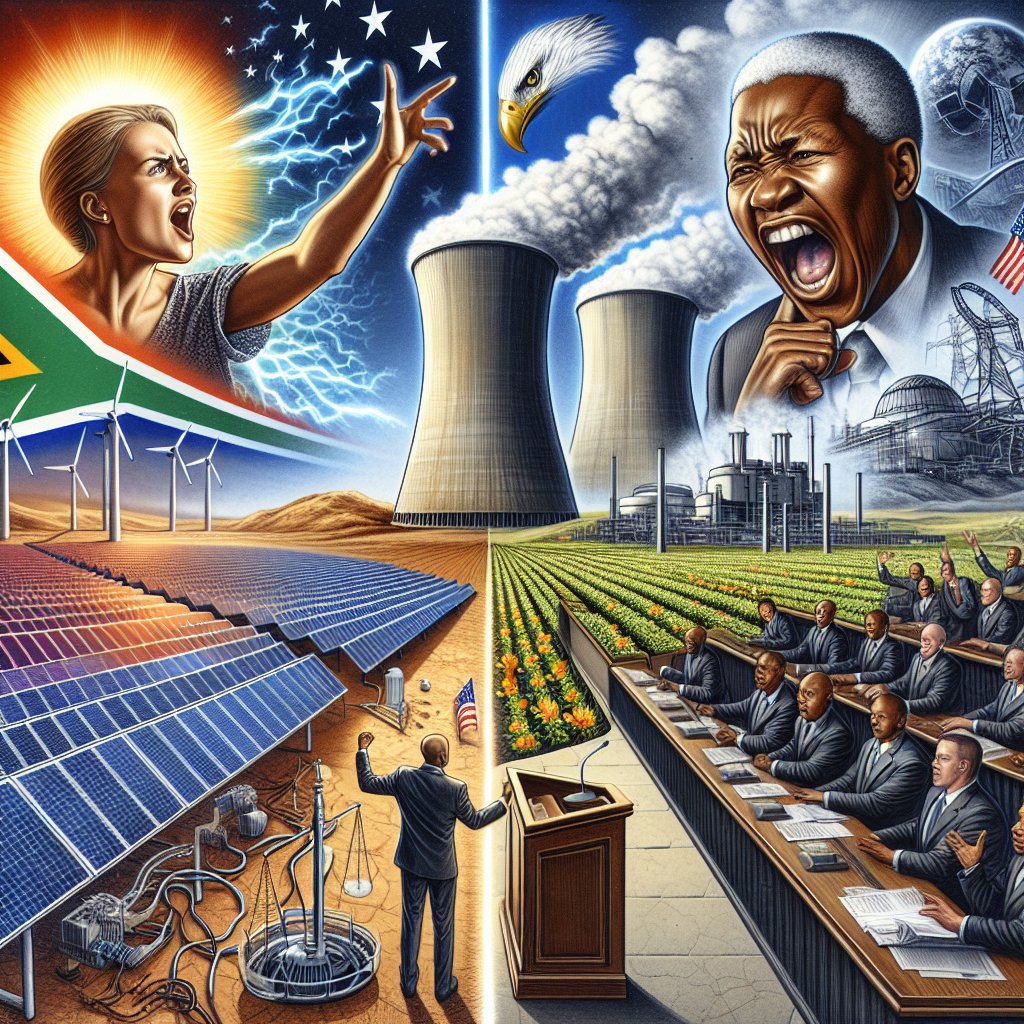Image created by AI
Internal Strife Amidst South Africa's Nuclear Energy Ambitions: DA Undercuts Ministry Efforts
The internal dynamics of South Africa’s Ministry of Energy reveal a brewing conflict that threatens to destabilise the country's pursuit of a stable and sustainable energy future. Deputy Minister Samantha Graham of the Democratic Alliance (DA) is at the heart of a controversy, as she aggressively promotes an American-backed solar energy agenda over the ministry’s nuclear energy projects.
The situation pits Graham against Energy Minister Kgosientsho Ramokgopa, who endorses the procurement of 2500MW of nuclear power to address the nation’s escalating energy needs. Reports from independent sources suggest that Graham's actions may be influenced by more than just political strategy; rumors of insider trading raise questions about the deputy minister's motives and the broader implications for South Africa’s energy policy.
The DA has been steadfast in its resistance to nuclear energy, and Graham's opposition within the ministry aligns with the party's historic stance. However, this internal discord surfaces during a crucial phase for South Africa, with Minister Ramokgopa advocating for nuclear energy as a viable, efficient, and clean solution, in contrast to costlier solar initiatives that have benefitted mainly foreign companies and have yet to deliver reliable and affordable electricity to the South African populace.
Adding complexity to an already convoluted issue, the country's nuclear procurement program is under legal scrutiny, challenged for its validity in court. The unrest instigated by the DA could potentially disrupt current nuclear plans, leaving a gaping hole in South Africa’s energy strategy.
The transition towards a robust energy portfolio, which saw Minister Ramokgopa's appointment being lauded, is under threat due to Graham's contentious actions. The insistence on favoring solar energy can potentially drive the country into an energy crisis, devoid of the planned economical and dependable nuclear solution.
The stakes are high as South Africa grapples with decisions on its energy future. With ongoing legal challenges, the alleged pro-American stance of the DA, and suppressed nuclear solutions, the impact of such strategy on the energy sector could be dire - an outcome many fear would only lead to a disastrous scenario rather than a resolution to the ongoing energy crisis.










